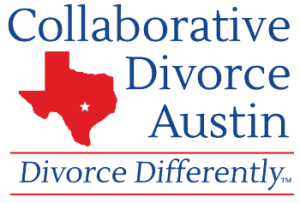The Constructive Alternative to Divorce
Family law matters can be complicated, particularly when children are involved. Although you may be ending your marriage, co-parenting responsibilities often will require many interactions and a continued relationship with your former spouse.
 At the Law Office of Amy K. Gehm, L.L.C., we understand the need and desire for many divorcing couples to maintain a positive relationship even after their marriage has ended; one that will foster open communication and mutual respect, and will provide a supportive environment for the future of their children. Our collaborative law practice may help you do just that.
At the Law Office of Amy K. Gehm, L.L.C., we understand the need and desire for many divorcing couples to maintain a positive relationship even after their marriage has ended; one that will foster open communication and mutual respect, and will provide a supportive environment for the future of their children. Our collaborative law practice may help you do just that.
As part of the collaborative law process, both parties, together with their respective attorneys, identify their goals and work out-of-court toward resolving their divorce with win-win solutions – solutions tailor-made for their unique family circumstances. Although the collaborative process does not necessarily mean a “conflict-free” resolution, it can help lead you and your family to a healthy new beginning.
Guiding Principles of Collaborative Law
Collaborative Law is based on four guiding principles:
- A pledge not to go to court while in the collaborative process:
At the beginning of the process, the parties and their attorneys sign a participation agreement stating that they will not litigate their case while in the collaborative process. If the parties are unable to settle their case, however, the collaborative lawyers must withdraw and litigation counsel would be retained if a hearing were needed. - An honest exchange of information by both spouses:
In a collaborative law case, the parties and their attorneys informally exchange documentation, rather than going through a formal “discovery” process. The parties and their attorneys will identify the documents that are necessary and are under an obligation to provide them. - Sharing of third-party experts:
Sometimes, family law matters require the use of experts for issues such as business valuation, determination of community or separate property, or to provide child custody evaluations. In a collaborative law case, experts are retained jointly and are agreed upon in advance by the parties and their attorneys. - A solution that takes into account the highest priorities of both spouses and their children:
Collaborative law utilizes “interest-based” negotiation methods designed to balance the power between divorcing couples and to protect the rights of each individual. This method helps solicit win-win solutions based on shared interests – such as needs, desires, goals and concerns – rather than outcomes based on posturing and threats.
Is the Collaborative process right for you?
You may want to consider the Collaborative Law process if:
- You want to establish a framework for open communication and/or co-parenting for your children
- You desire a post-marital friendship with your spouse
- You and your spouse share common friends and/or extended family and you want to preserve those relationships
- You want to retain control over the outcome of your settlement, rather than have the outcome of the matter determined by a judge
- You want a respectful and dignified resolution
- You want to minimize or eliminate the potential harm to your children which may arise through parental conflicts
- You and your spouse value honesty, integrity and dignity
- You are looking for a more creative and/or tailor-made solution than the courts may offer
- You value privacy and discretion, and would like to avoid a public court dispute
- You understand that resolving conflicts with dignity requires not only meeting your own goals, but also finding ways to meet the reasonable goals of your spouse.
When may the collaborative process not be appropriate?
Collaborative law may not be the best fit for every client. You should consider the traditional litigation process if:
- You believe your spouse lacks honesty:
If you believe that your spouse would be untruthful with you or not fully disclose relevant matters, the collaborative process may not be the best option for you. The traditional litigation process could reveal hidden facts. - Untreated alcohol/drug abuse exists:
If there are untreated alcohol or drug abuse issues involving the endangerment of your children, prompt court intervention may be necessary. - A history of family violence exists:
Collaborative law may not be appropriate if there has been a history of family violence, if you are intimidated by your spouse, or if you believe you are in an unequal bargaining position.
“Going through a divorce was the most difficult time I have experienced in life. There were so many layers and topics to confront and my extreme emotional distress only made matters more difficult. I was incapable of doing these things on my own. Amy was my advocate at a time when I was practically paralyzed with fear. She was always thorough and understanding; calm and compassionate, yet a solid, trusted companion for both me and my daughter during that burdensome and challenging time. She knew and recommended respected professionals to work alongside her in the many areas of concern. I am truly blessed to have had Amy walk down this most difficult road with me and highly recommend her law firm.”
– Michelle
“As part of the collaborative law process, both parties, together with their respective attorneys, identify their goals and work out-of-court toward resolving their divorce with win-win solutions – solutions tailor-made for their unique family circumstances.”
